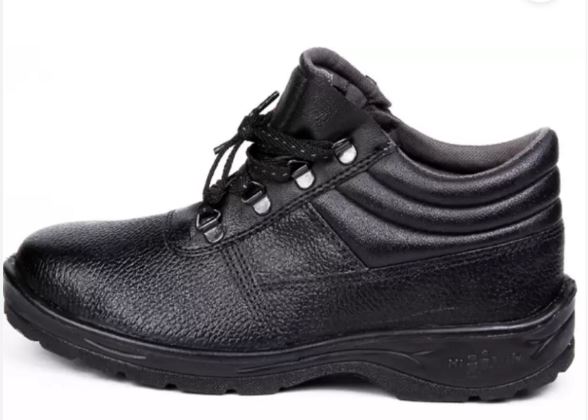Tel: 0129-4001010 Phone: +91 730 321 5033
Email: cs@absoluteveritas.com
BIS CERTIFICATION FOR LEATHER SAFETY FOOTWEAR MOULDED RUBBER SOLE IS 11226:1993
In today's competitive landscape, maintaining market presence without a certified, high-quality product can be challenging. Obtaining a BIS license may also be essential for selling products in the Indian market. To achieve BIS certification and ensure product quality, manufacturers must adhere to the specified Indian standards.
Lets delve deeper into IS 11226:1993 for leather safety footwear having direct moulded rubber sole.
Leather safety footwear featuring direct molded rubber soles falls under IS 11226:1993. This Indian Standard was adopted by the Bureau of Indian Standards subsequent to the approval of the draft by the Chemical Division Council, as finalized by the Footwear Sectional Committee.
This standard delineates the criteria, sampling techniques, and testing protocols for leather safety footwear equipped with steel toe caps and direct molded rubber soles. These safety footwear types may be worn by workers in mines, refineries, fertilizer plants, and other environments where the working surface is oily.
The leather safety footwear featuring direct molded rubber soles shall be categorized into three types based on their design:
-
Type 1 Ankle boots
-
Type 2 Jodhpuri shoes
-
Type 3 Derby shoes
Leather safety footwear with direct molded rubber soles must utilize materials that adhere to the specifications outlined in IS 11226:1993. These standards detail the material and thickness requirements for various components. The footwear should be manufactured using either the direct vulcanizing or direct molding process. Sampling, selection methods, and conformity criteria for footwear are specified in IS 2051:1976. All specified tests must be conducted in a suitably equipped and staffed laboratory, following the procedures outlined in the standard. If the Applicant/Licensee applies for two or more types, separate testing must be conducted for each type.
TESTS
The subsequent test must be conducted for canvas shoes for miners.
-
Water Vapour Permeability test,
-
Consolidation Test,
-
Tear Strength test,
-
Breaking Strength test
-
Resistance to Hot Contact of Sole Heel
-
Abrasion Resistance test
-
Abrasion Resistance test
-
Flexing Test
-
Absorption Test
-
Impact Test
The boots must bear markings indicating their size, month and year of manufacture, and trademark details as per the specified standard. Additionally, the Standard Mark (ISI Mark) may be applied to the product. Manufacturers are required to acquire a BIS license from the Bureau of Indian Standards to utilize the standard mark (ISI Mark). This license is granted following a successful assessment of manufacturing infrastructure, production processes, and quality control and testing capabilities conducted during a visit to their manufacturing premises.
PROCESS FOR BIS ISI MARK CERTIFICATION

BIS CERTIFICATION PROCESS
Acquiring a BIS license requires a comprehensive review of manufacturing infrastructure, quality control abilities, testing resources, and production procedures. This thorough assessment guarantees that products not only adhere to regulations but also prioritize consumer safety and reliability.
NOTE:
For comprehensive guidance on the BIS ISI Certification process, please explore:
WHY USE ABSOLUTE VERITAS?
Absolute Veritas is a prominent organisation from the private sector of India primarily dealing with the Inspection, Testing, Audits, Certification of products& consulting services to various industries in India and worldwide, ensuring compliance with regulatory standards and industry requirements. Offering a comprehensive range of services including product certification, testing, training, auditing, and compliance services, Absolute Veritas helps manufacturers and importers achieve higher production efficiency and quality standards.
Absolute Veritas (AV) will handle end to end pre-registration request, sample preparation, documentation, testing and application process for FMCS Certification
For any questions regarding the most recent update on FMCS registration licenses, please reach out to us via email at cs@absoluteveritas.com








 ❮
❮
